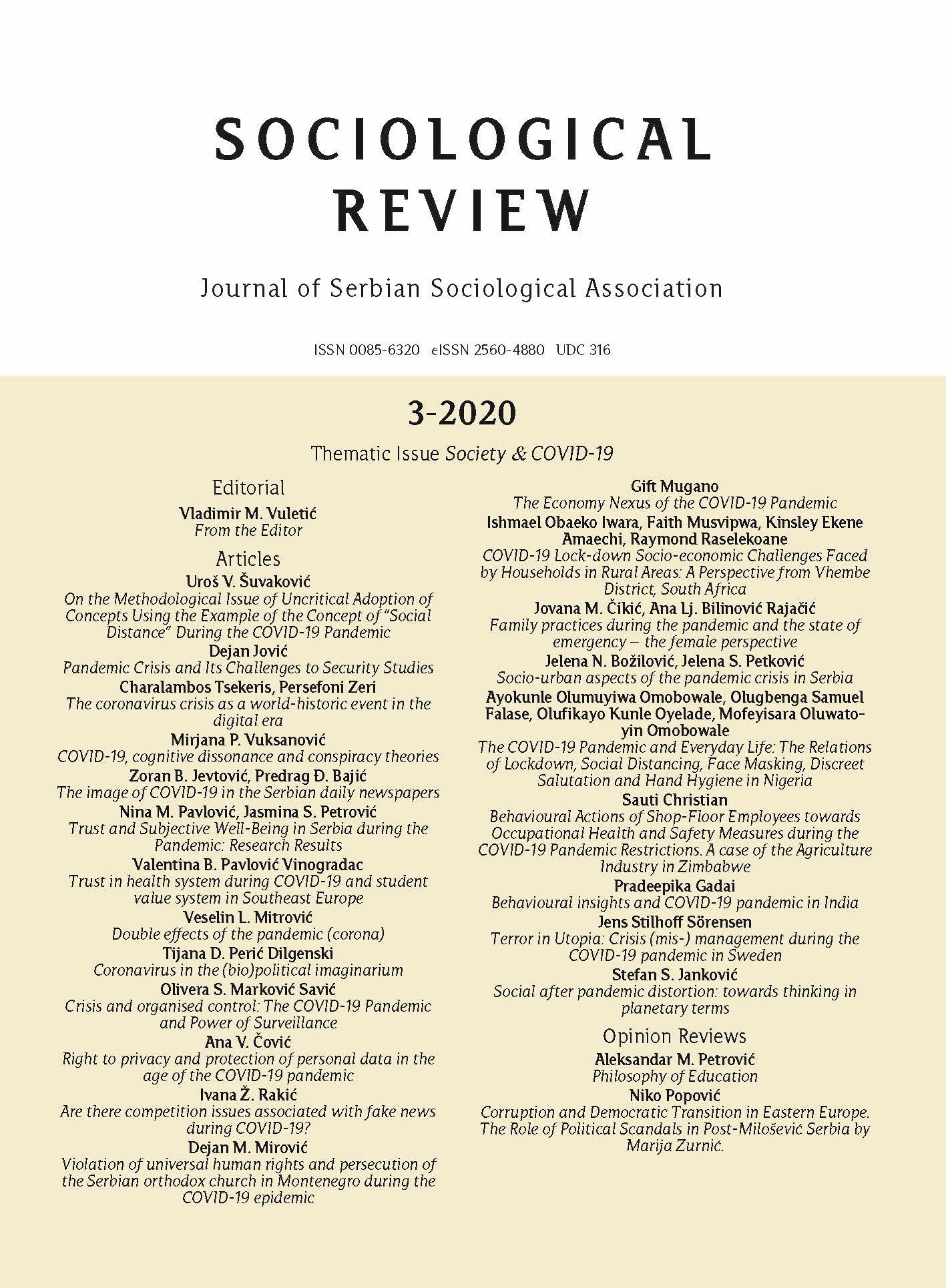Behavioural Actions of Shop-Floor Employees towards Occupational Health and Safety Measures during the COVID-19 Pandemic Restrictions. A case of the Agriculture Industry in Zimbabwe
Behavioural Actions of Shop-Floor Employees towards Occupational Health and Safety Measures during the COVID-19 Pandemic Restrictions. A case of the Agriculture Industry in Zimbabwe
Author(s): Sauti ChristianSubject(s): Social Sciences, Sociology, Social development, Social differentiation, Health and medicine and law, Economic development, Social Norms / Social Control, Globalization
Published by: Српско социолошко друштво
Keywords: Agricultural Industry in Zimbabwe;Coronavirus (COVID-19);Co-Evolution;Postmodernism;Pandemic;Precariat;Occupational Health and Safety (OHS);
Summary/Abstract: COVID-19 pandemic has brought massive suffering to many workers globally. It has disrupted the normalcy and socio-economic fabric in many societies and has redefined the nature of the world of work. Several restrictions and measures to mitigate the spread and implications of Coronavirus have been put in place through government and individual employer efforts. These include the compulsory use of masks, body temperature tests, avoidance of unnecessary movement and maintenance of social/physical distancing among other occupational health and safety practices. Based on the findings from two selected timber sector organisations in Zimbabwe, employees have non-congruent behavioural actions to conform and adhere to the OHS measures for COVID-19. The management believes that shop-floor employees are not scared of the pandemic; they think that the virus is an illusion. Employees resist respecting social/physical distancing due to their cultural beliefs and value; some are even stealing hand sanitisers for other uses rather than the prevention of COVID-19. The study recommends effective training, awareness campaigns and effective communication for culture change and to help workers appreciate that COVID-19 is very deadly and is a reality. Taking disciplinary action for non-compliance of shop-floor employees has created negative perceptions and led to counterproductive behaviours among workers towards efforts to manage and control the spread of COVID-19 in the workplace. Trade unions and worker committees have a role to play in enhancing communication and advancing workers interests for improvement of decent working conditions in the face of Coronavirus. The state and employers should ensure respect for fundamental rights of the precariats who are soldering on in the pandemic context.
Journal: Социолошки преглед
- Issue Year: 54/2020
- Issue No: 3
- Page Range: 888 - 919
- Page Count: 32
- Language: English, Serbian

